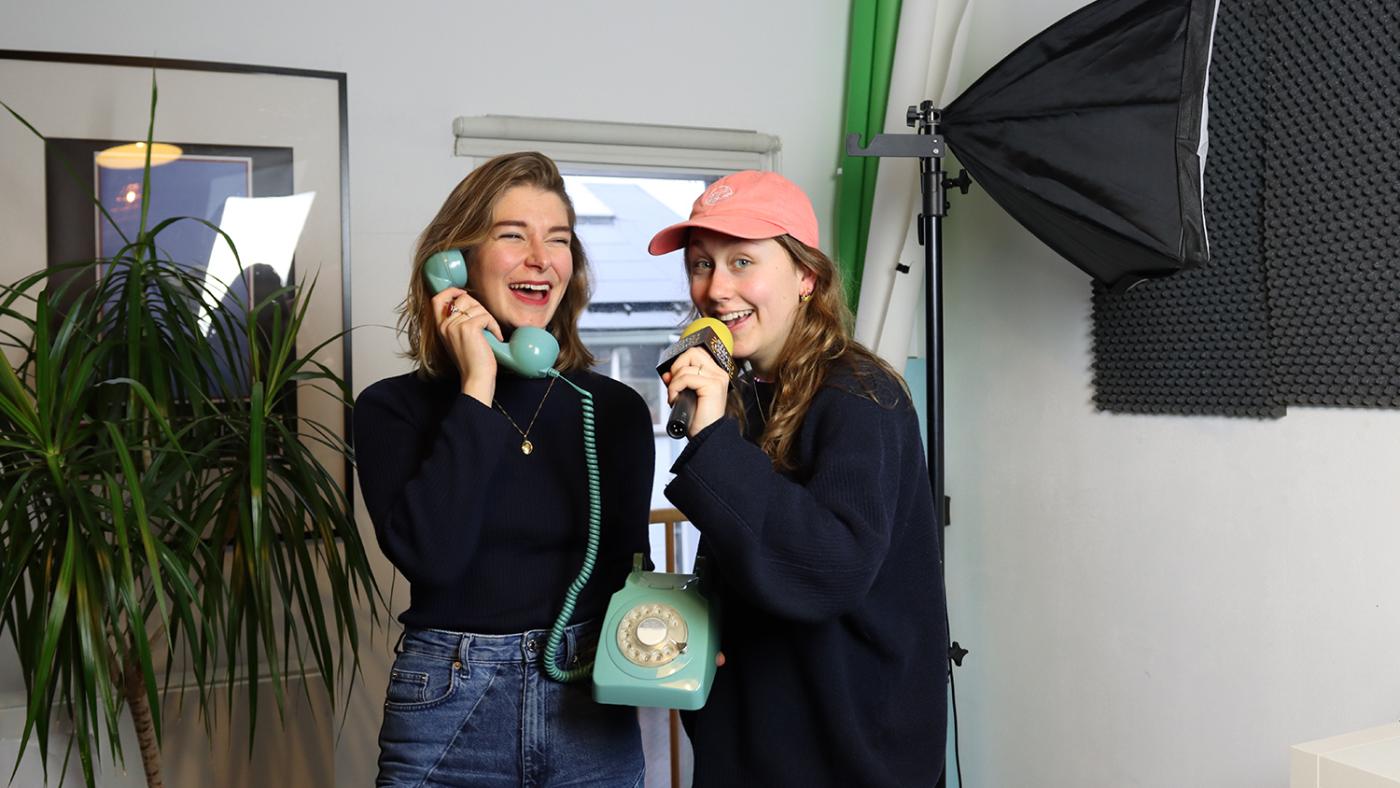Twentysomethings doubt their life choices
‘I saw on Instagram that some of my old classmates are getting engaged’

Wieke van Vlaardingen (23), a Master’s student in Economics and Philosophy, couldn't help but notice that more and more people she knows were moving in together, even though, not so long ago, they were staying at the pub until early in the morning swearing they would remain students for as long as they could. “I saw on Instagram that old classmates of mine are getting engaged, and that shocked me. I'm in a very nice relationship, but getting married? I hadn’t even thought about that. That’s crazy. You’re the same age as them, but suddenly your lives start to diverge due to different choices,” says Wieke.
Former UU student Puck van Tussenbroek agrees. She too feels that change has come all of a sudden. After obtaining a Master’s degree in Sociology last year, she could no longer postpone deciding what to do with her diploma. The final sprint to graduation had exhausted her. Although she is smiling in the pictures of her graduation ceremony, the truth is she wasn't happy inside at all.

TikTok therapy
In their podcast, Twintigers (Twentysomethings, Ed.), Puck, Wieke and Maxim Zewe, a Physics student at the University of Amsterdam and VU Amsterdam, talk about young people's struggles, the grey area between studying and working, and the multitude of options that open up after graduation. The podcast has weekly episodes and the first season, which has just been wrapped up, has ten episodes. The trio is now planning a second season.
The podcast addresses topics like the constant urge to perform and where it stems from. The topics are also relatable to their generation. One episode, for example, discusses TikTok and therapy: the trio investigates whether more frequent mentions of mental health on social media provide young people with more insight or generate more disinformation.
Other young people and experts are invited to discuss these topics with the trio, and the hosts make sure that different perspectives are represented. Wieke: “Our first episode was about the choice between working full-time or part-time. The perception is that a full-time job is the norm and part-time jobs are for the lazy or unambitious. However, research shows that almost 40 percent of 25 to 35-year-olds in the Netherlands are working part-time, so full-time jobs are not that much of a norm after all. Working part-time doesn't necessarily mean laziness or a lack of ambition. By saying this in the podcast, we hope to help young people make their choices.”

Freedom
According to the three podcast hosts, having many options to choose from means that young people are free to live their lives their way. However, this abundance of choice also generates stress and uncertainty. Wieke: “Many people around me don’t know what to do with their lives. They feel pressured to perform, depressed, they get panic attacks, or they burn out. I’m shocked when I see how many of my friends are struggling with this.”
When talking about mental health, many people talk about students rather than with them, according to Puck and Wieke. That is why they've decided to start a podcast that would be hosted by students and give the floor to other students. After all, not everyone understands what they are going through. “We also wanted to delve into the reasons why we feel this choice overload and how it related to our times," explains Puck. Certain aspects of the phenomenon are particular to the current generation of students as things were different for previous generations. Think about the student loan system (adopted in the Netherlands between 2015 and 2023), which pushed students to graduate faster; or the Covid-19 pandemic, the housing crisis, and social media. According to the podcast hosts, these are but some of the factors that set this generation of students apart.
Comparing yourself to others
Puck and Wieke believe that people tend to underestimate the extent to which these factors affect young people and their mental health. “We can compare ourselves to everyone all the time, so we can’t escape seeing all the different lives we could lead,” says Puck.
Wieke adds: “You see friends doing things that you want to do. One person is doing an internship in Mali, while another other is buying their first home. And then you think: 'I could choose all of that too.' It’s a search for what suits you best, but it’s frightening because if you open a certain door, another door closes.”
Your own pace
The podcast aims to talk about these doubts openly. The hosts also hope that listeners will feel less alone. Puck: “If you don’t know what to do, it’s nice to hear that others are having the same worries. It’s also very understandable that they feel this way, it is okay to feel this way. Our generation is sometimes described as weak: people say we can’t handle anything anymore because we have more psychological problems. I think those descriptions are really bad, they make things even worse.”
“I hope we can help many people in their twenties by reassuring them that there are many different paths you can take and it's up to you to choose at what pace and at what time you will take your next step,” says Wieke.